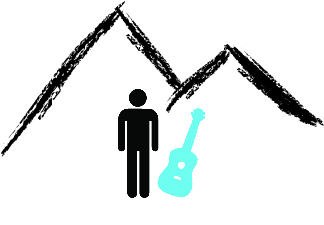Very much like everyone's Bulgarian grandfather makes his own Rakia (tasty alcoholic beverage) in the basement, every single Bulgarian region has its very own traditional baggage. The dances, the outfits, even the specific melodies and special rhythms. From the Strandzha Mountains to Koprivshtitsa, they all have their own characteristics. And very much like Rakia, it's something you need to learn to appreciate, at small doses at a time, because, despite your eventual confidence, this is strong stuff that your non-Bulgarian body is not used to.
Let me then take you on a little introductory promenade. Small doses is key to really enjoying the taste.
It must be said though, that for myself, it is really in Sea capital Varna that I experienced the colourful traditional Bulgarian folklore first hand. A fine city on the East Coast (or "Coast, as there's only one), lying on the Black Sea and on layers of Thracian, Greek and Roman ruins (but for more on that you might need to listen to the Podcast from Varna).
Let us start off with a little song from the famed Mysterious Bulgarian Voices, and more specifically here, by the a capella women's choir BWVFE, stealthily filmed by my (hardly) discreet phone:
These very unique voices, luckily for you, can also be heard individually, outside of a typical choir formation. If you look carefully at the video above, you will notice young Polina, second from the left, who was kind enough to record a few songs for the website in the Varna Sea gardens, right after having already graced the Podcast, Episode 4 with her wonderful singing.
Fifteen-year-old Polina is playing these traditional melodies on the Bulgarian version of the Ukulele, the Tambura! It is actually stringed like the last four strings of a guitar, except it's strings are doubled, which gives it this particular sound.
If you listen closely to Polina's song on the right, "Sadi Rada Radouli" which is a song about this guy called Radi who sells radishes (this is a total guess by the way), you will notice irregular rhythms throughout the song, as if some beats were avoided or added and the music was taking surprising detours and short cuts. This is a very specific trait of Bulgarian traditional music. And this is not (solely) due to over-consumption of Rakia by Bulgarian folk-song-writers. Bulgarian folklore, cut off of Western influences during the Ottoman rule kept developing it's very unique musical style.
As surprising as that may sound, many of these "confusing" rythms are perfectly natural to most Bulgarians who, having heard and danced to them all their lives, are more than glad than to skip effortlessly to them on a sunny afternoon in the popular "Sea Gardens". Try to spot which ones are the non-Bulgarian tourists.
This rythm could probably be best decribed as the da-x-dou-bi-DOU-DOU-di. Maybe. I don't really get it to be honest. I would love to join in though. But similarly to following Bulgarians drinking Rakia, it's probably something you can only do after a lot of practice and spending many years living in the country.
Despite a craving to join in with the dances and the Rakia, I might just stick with what I know for now. Speaking of which, do any of these Ukuleles ring a bell?
By the entrance of Yo-Ho Hostel, Varna






